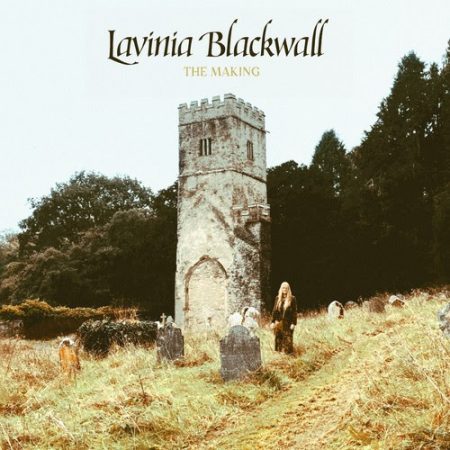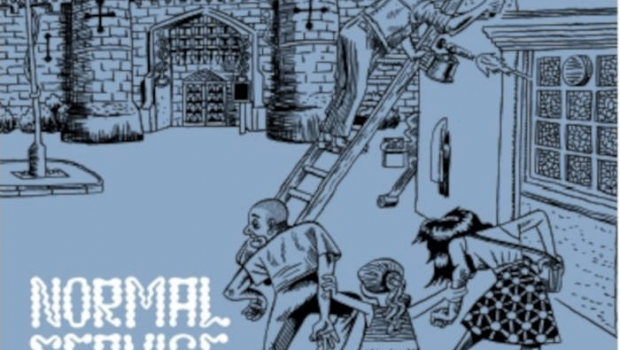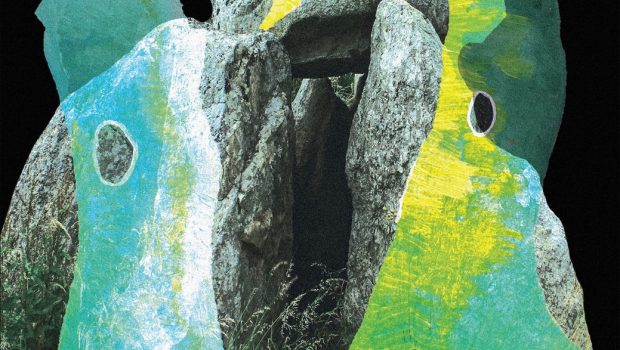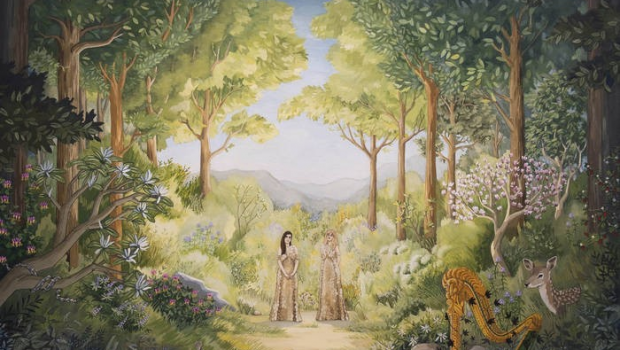 Anyone listening to Trembling Bells for the first time would have been struck by Lavinia Blackwall’s vocals. A classically trained soprano, she brought a purity of voice to their freak folk music, soaring with grace yet also having a lived-in edge. It would not be hyperbole to draws comparisons with Sandy Denny. Unsurprisingly, her second solo album since the band disbanded plays to her voice’s strengths and offers more of a pop-tinge to the folk roots. However, the arrangements on the ten tracks that comprise ‘The Making’ are often tricksy and complex but performed with such assurance that they have the rush of finely tuned pop songs.
Anyone listening to Trembling Bells for the first time would have been struck by Lavinia Blackwall’s vocals. A classically trained soprano, she brought a purity of voice to their freak folk music, soaring with grace yet also having a lived-in edge. It would not be hyperbole to draws comparisons with Sandy Denny. Unsurprisingly, her second solo album since the band disbanded plays to her voice’s strengths and offers more of a pop-tinge to the folk roots. However, the arrangements on the ten tracks that comprise ‘The Making’ are often tricksy and complex but performed with such assurance that they have the rush of finely tuned pop songs.
The follow-up to her 2020 solo debut, ‘Muggington Lane End’, was written over a four- year period that included major traumatic life events for both Blackwall and her partner, collaborator and producer, Marco Rea, as they both lost a parent during this time. The length of time it took to complete is reflected in the variety of styles and moods encompassed, although there are recurrent themes of mental resilience and shaping one’s own destiny that are a natural response to the challenges of these life-altering events. There is a richness to the sound coming from the variety of instrumentation: Blackwall plays piano, organ and autoharp while Rea performs on guitar, bouzouki and mandolin as well as pianos. The band, unchanged from the line-up that recorded ‘Muggington Lane End’, is completed with the steady presence of Jim McGoldrick on bass and Seb Jonson (drums). It also features a number of guests who add to the sound: Laura J Martin, who has released a wonderful album with Blackwall as the duo Wyndow, adds evocative flute and recorder; Ross McCrae and Richard Merchant are on trombone and trumpet respectively; and Maggie Riley’s backing vocals combine with Blackwall’s to create some superb harmonies.
Understandably, the album begins with one of its most accessible tunes, the piano-led melody of ‘Keep Me Away From The Dark’ which hints at struggles to survive the modern world via its determination to “switch off the news and turn off the phone” and take refuge in listening to favourite songs. There is a distinct contrast between the buoyant tune of ‘The Damage We Have Done’ and its images of melting ice and rising seas, grounds growing weak as cities flourish and rueful reflections on being king for a day until our bodies give way leaving behind only the titular damage.
‘Scarlett Fever’ is the only song for which Blackwall did not write the lyrics. Instead, they are provided by John Plowright and it is more of a traditional folk song both musically and linguistically with its references to a man with a musket, breeches and a cocked hat who meets a maiden. The lyrical twist in which he takes her maidenhead and bounds to another’s bed gives it a rueful edge, its wistful mood heightened by Martin’s recorder. The miniature brass band augments ‘My Hopes Are All Mine’, a bittersweet ode to following dreams.
The jaunty ‘Morning To Remember’ sets off with a bounce in its step to the post-box and a wave across the street but is undercut by the second verse and its references to a final red demand, overflowing bins, being two weeks out of synch and finding a pair of panties outside her home (accompanied by a laddish whistle). Expressing a need to break away from the melancholy and humdrum, there is a remarkable melodic shift to accompany the desire to be a bird flying free. Martin’s swirling flute captures this mood perfectly.
The title track is another stand-out. It has a grand prog-folk-pop quality, exquisite vocal harmonies and a positive message about taking control of one’s destiny and having unlimited dreams. ‘We All Get Lost’ was written while Blackwall was a teacher, stressed and looking for a way out before she broke. In spite of this, it has a seize the day zest heightened by cascades of organ and moments of Byrds-like chiming guitar. While ‘The Art of Leaving’ retains that quality to its guitars, the mood is darker with Blackwall possessed by a devil inside her head.
‘The Will To Be Wild’ starts as a piano ballad and gains momentum as Blackwall grapples with the daily grind of adulthood and bathrooms that need tiling. The closing number, ‘Sisters In Line’ aptly summarises the qualities that ‘The Making’ displays: regular shifts in tempo and mood, melodic and harmonic depth, an impressive array of instrumentation, in this case including the mini-brass band. All told, the album builds upon the qualities of ‘Muggington Lane End’ but marks a considerable progression.
Lavinia Blackwall: The Making – Out 30 May 2025 (The Barne Society)












